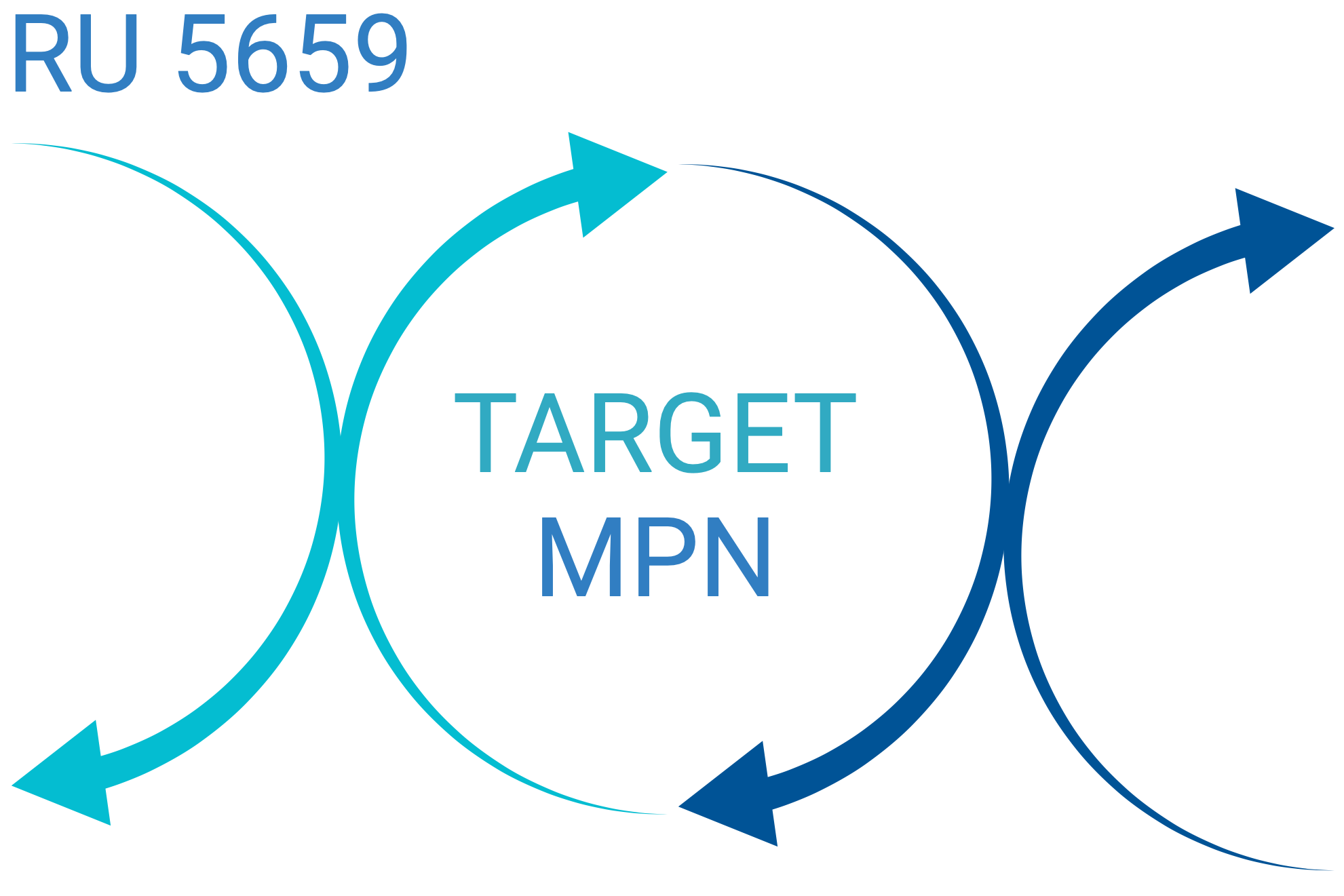Characterizing the impact of inflammatory signaling on MPN disease persistence
Myeloproliferative neoplasms (MPN) are characterized by excessive inflammatory signaling. Key roles in the propagation of these signals are the Janus-kinases, responsible for mediating the effects of cytokines, chemokines, and growth hormones. In the context of MPN, JAK2 emerges as a significant somatic driver mutation triggering an escalation in the expression of proinflammatory cytokines. Above all, TNF emerges as a significant disease driver. Importantly, recent research indicates that apart from the JAK2-mutated clone, non-malignant „bystander“ cells can also produce proinflammatory cytokines. This interaction is further evidenced by several groups, including our own, showing that RIPK1 and RIPK3 promote the release of IL-1b from macrophages and dendritic cells in response to TLR4 or TNF receptor 1 (TNFR1) stimulation. These data highlight that both the malignant clone and the microenvironment contribute to the disease progression and persistence as inflammatory signaling originates from both compartments. Although chronic inflammation and cytokinemia are prominent pathophysiological features of MPN, the underlying mechanisms causing this persistent inflammatory state in individuals with MPN remain only partially unresolved.
We and others have identified a potent tumor-suppressive role of RIPK3-mediated cell death across different cancer entities and oncogenic drivers which depends not only on its death-inducing function but also on the inflammatory responses associated with non-apoptotic death. To fully understand the functional role of RIPK3 in MPN, we have established a clinically relevant MPN mouse model based on the conditional heterozygous Jak2V617F/+ knock in mouse strain where we combined an activation of the Jak2V617F mutation in hematopoietic cells together with a total-body deletion of RIPK3. Notably, this mouse model recapitulates key aspects of MPN, including splenomegaly, altered blood counts, and myeloproliferation, and provides the unique opportunity to investigate the role of RIPK3 in the progression of MPN.
We hypothesize that inflammatory signaling in MPN cells requires amplification via the protein complex termed “the necrosome”, thereby effectively promoting disease progression. Specifically, we hypothesize that paracrine or autocrine JAK2-induced and cytokine-mediated signal transduction in MPN cells induces the formation of RIPK1/RIPK3 complexes (“necrosome”), subsequently activating downstream signaling towards programmed necrotic cell death (necroptosis) and inflammation. Ultimately, we believe the amplification of inflammation by RIPK3-mediated cell death or RIPK3-mediated inflammation (or both) propagates the MPN disease phenotype which is why this project aims:
To elucidate the role of necroptosis-induced inflammation on survival in JAK2V617F-driven MPN cells.
To elucidate the molecular contribution of prolonged cell survival to MPN in vivo.
To target MPN persistence by pharmacologic inhibition of necrosome signaling in vivo.


